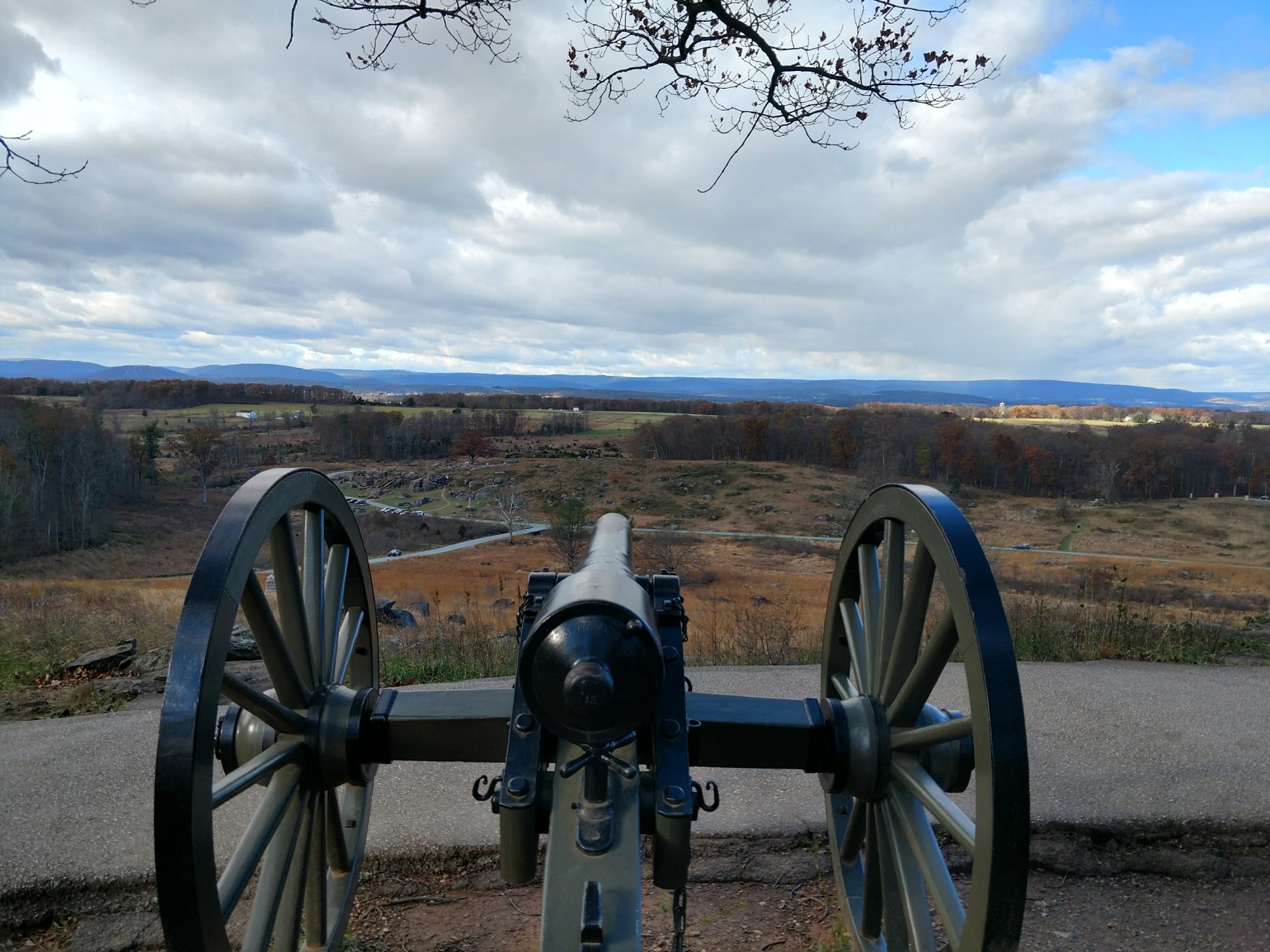Ah, Christmas, the tinsel-draped time of year where we can set aside our differences and join hands in some good old fashioned, harmless Christmas carols, right?
Ha, wrong, of course – I’m nothing if not contrarian. In fact, some carols are nothing but divisive, hearkening back to the four years when the nation virtually tore itself into pieces. Because yes, everything always comes back to the Civil War.
“But ASO,” says a tenderhearted person on the internet – a fictional character, of course, no one on the internet is tenderhearted – “Surely there are some innocuous carols that don’t have to do with war? Like Jingle Bells, perhaps,” adds this truly delightful imagining, probably flashing a winning smile.
My dear sweet, summer child, we reply. Here, sit down by the fire. Have some hot cocoa. Would you like some more marshmallows? Some slippers? Cozy? Good, because it’s time to wreck some innocent assumptions.
Our story begins with Bostonian James Pierpont, who sounds exactly like a bit of a spoiled blue blood, doesn’t he? He was, dear reader, he was. Son of Unitarian abolitionist and generally progressive dude John Pierpont, James couldn’t quite figure out what to do after private school. He ran away to sea, thought better of it, gave photography a go, tried his hand at prospecting gold, abandoned his wife and kids a few times; you know, just rich white boy stuff. In the 1850s, his brother John Pierpont Jr. moved to Savannah, Ga. where he took over a small Unitarian congregation as minister and asked his brother to come down to help. James moved to Savannah and took up music, playing in the church and composing songs in his down time. In 1857, he published, “Jingle Bells, or a One-Horse Open Sleigh.” It was not an immediate hit. Jimmy was a delayed one-hit wonder. By about 40 years.
By 1860, the Unitarian church in Savannah was forced to shut its doors since Georgians weren’t big fans of the church preaching that owning people is bad. John Jr. returned northwards but Jimmy stuck around, having married a woman from Savannah and being pretty chill with the whole slavery thing. So in 1861, James Pierpont joined a Georgia militia unit, which eventually became the 1st Georgia Cavalry Battalion and later the 5th Georgia Cavalry Regiment. During that time, he wrote such noted bangers – note: they were not bangers – as “Our Battle Flag,” “Strike for the South,” and “Conquer or Die.” It should be noted that he did neither of these latter, surrendering with the regiment in April 1865.
Meanwhile, Pa Pierpont joined the 22d Massachusetts Infantry in 1861, at the ripe old age of 76. After two weeks, everyone thought better of this and he got a job with the Treasury Department during the war – appropriate for the grandfather of John Pierpont Morgan, aka, J.P. Morgan, of JPMorgan Chase (the “Chase” being Salmon P. Chase, btw, Lincoln’s Secretary of the Treasury, because literally everything can be tied back to the Civil War). His son James remained in the south after the war, the family never reuniting.
Jingle Bells is kind of a dumb song, too, if you really think about it.
There’s another carol that I want to direct our attention to. It, too, has its roots in the Civil War. In the waning days of November and early December, 1863, the U.S. Army of the Potomac engaged in a series of aborted offensives in northern Virginia known today as the Mine Run Campaign. It was inconclusive from the operational perspective and the armies went into winter camps.
But the strategic or operational perspective never captures the individuals who are maimed or killed – they are glossed over by fancy-sounding words, as I used earlier: “inconclusive;” “abortive.” Personal loss and familial grief have no place in those words. But there were many such losses.
Among them was a young lieutenant of the 1st Massachusetts Cavalry, one of the U.S. cavalry regiments always in the thick of things. While on reconnaissance, he was shot in the back. This lieutenant had joined up in 1863, against the wishes of his father, writing:
“Dear Papa
You know for how long a time I have been wanting to go to the war I have tried hard to resist the temptation of going without your leave but I cannot any longer, I feel it to be my first duty to do what I can for my country and I would willingly lay down my life for it if it would be of any good God Bless you all.
Yours affectionately
Charley.”
The “Charley” was 1st Lieutenant Charley Longfellow, and “Papa” was the famed poet, Henry Wadsworth Longfellow. Charley was lucky; he survived.
One thinks of the famous father, now solely the worried parent, frantically travelling to the seat of war, searching the D.C. hospitals and the field hospitals in Virginia for his son, not knowing what he will find. As so many did in that war, in every war. It is the plight of the parent in war to worry about the death of their child, a perversion of the normal state of existence.
Henry was lucky, too; he found Charley alive. But the experience had shaken him. So on Christmas Day, 1863, he wrote his feelings down as only Henry Wadsworth Longfellow could. The result was “Christmas Bells.” We know it as it was set to music in 1872: “I Heard the Bells on Christmas Day.”
And yet, none of us, probably, have heard it with all the verses. The verses of a man conscious of the devastating war leaving thousands of parents in mourning that Christmas of ’63, with permanently empty chairs in homes across the nation after a year of shocking violence that put places like Chancellorsville, Vicksburg, Gettysburg, Chickamauga, and Chattanooga on the national map. The pent-up sorrow of a divided nation. And so he tried to address it.
The opening is familiar, of course, but knowing the feelings of his heart, they take on a new tone. Biting. Pained.
I heard the bells on Christmas Day
Their old, familiar carols play, and wild and sweet
The words repeat
Of peace on earth, good-will to men!
And thought how, as the day had come
The belfries of all Christendom
Had rolled along
The unbroken song
Of peace on earth, goodwill to men!
Till ringing, singing on its way
The world revolved from night to day
A voice, a chime,
A chant sublime
Of peace on earth, goodwill to men!
And then Longfellow strikes, with the reality of what was on his heart:
Then from each black, accursed mouth
The cannon thundered in the South,
And with the sound
The carols drowned
Of peace on earth, good-will to men!
This verse is the plea of a father whose household was nearly made forlorn, and so he speaks for the hundreds of thousands:
It was as if an earthquake rent
The hearth-stones of a continent,
And made forlorn
The households born
Of peace on earth, good-will to men!
You can literally feel the desperation in this verse. The cost of war.
And in despair I bowed my head;
“There is no peace on earth,” I said;
“For hate is strong,
And mocks the song
Of peace on earth, good-will to men!”
But in the end, Longfellow channeled Lincoln’s words from the month prior: “that these dead shall not have died in vain.”
Then pealed the bells more loud and deep:
“God is not dead, nor doth He sleep;
The Wrong shall fail, The Right prevail,
With peace on earth, good-will to men”
This Christmas season, there are so many experiencing the emotions of loss, of anguish, of heartbreak from the loss of a loved one to war. Our world seems divided and frayed at the edges, as if it were all about to fall into bits around us. All we can do is hang on, and hold on to the hope that Longfellow put into words all those years ago: “The Wrong shall fail, the Right prevail.”
Enjoy what you’ve just read? Please share on social media using the buttons below.
Views expressed in this piece are the author’s own and do not reflect those of the U.S. Army or Department of Defense.
Cover image via Openverse



